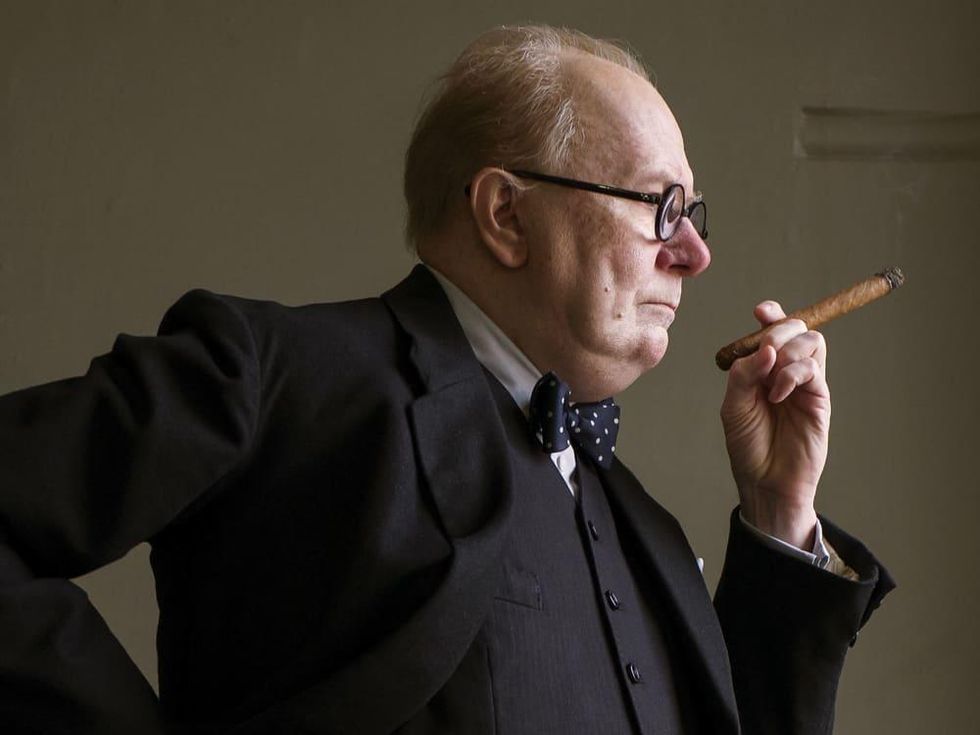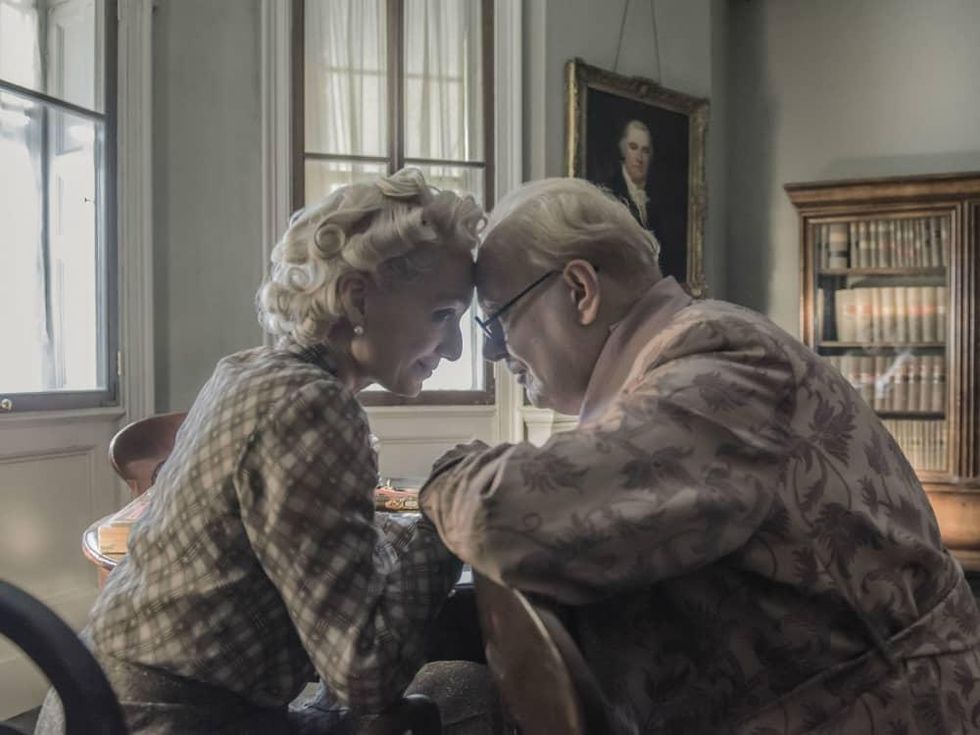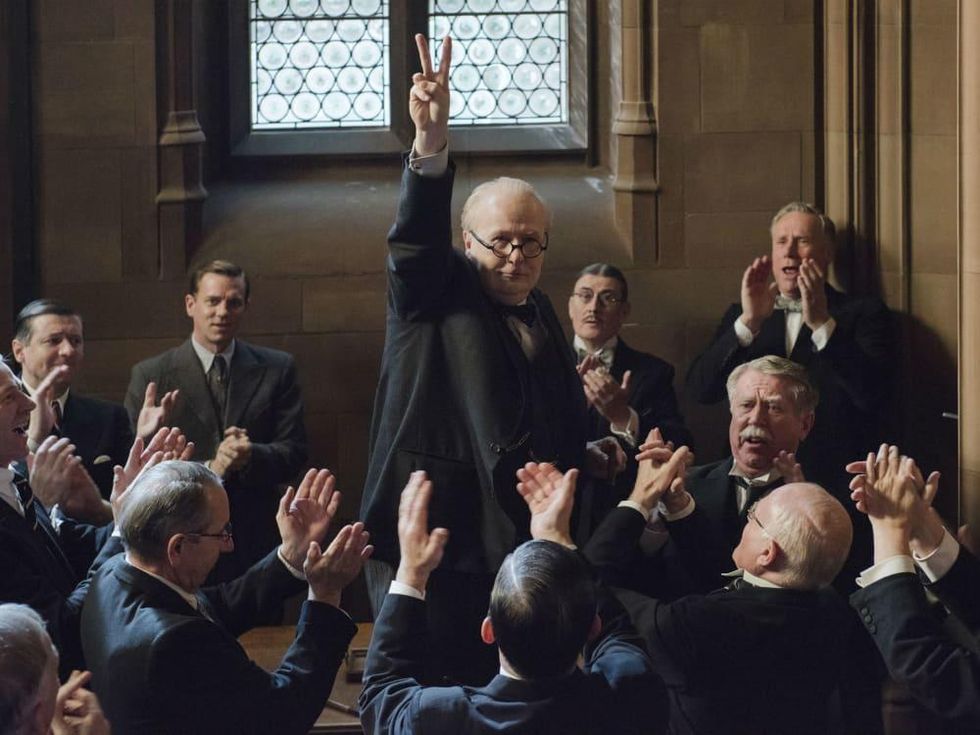Movie Review
Gary Oldman gives Oscar-worthy performance as Churchill in Darkest Hour
For some reason, 2017 is the year British filmmakers have decided to commemorate the 1940 evacuation of Dunkirk during World War II, albeit each in much different ways.
Christopher Nolan took the straightforward approach, showing the military on the beach and their would-be civilian rescuers in Dunkirk. Their Finest involved filmmakers tasked with making a movie about the evacuation. And now Darkest Hour goes inside the British government to show how Prime Minister Winston Churchill and others dealt with the perilous situation.
As the film begins, Churchill (Gary Oldman) is named prime minister following a vote of no confidence for his predecessor, Neville Chamberlain (Ronald Pickup). Churchill must try to gain the trust of the opposition party, something that’s especially difficult when his goal — to defend England at all costs — is at odds with their desire to broker a peace agreement with the advancing German army.
While the film contains politics aplenty, it also looks to humanize Churchill. It shows him at home with his wife, Clementine (Kristin Scott Thomas); in one-on-one meetings with King George VI (Ben Mendelsohn) and others; and in personal interactions with his secretary, Elizabeth Layton (Lily James). Churchill comes off as strong-willed yet approachable rather than the standoffish curmudgeon he’s said to be by multiple characters.
As with any historical film, it’s unlikely that the events transpired exactly as they’re depicted. But director Joe Wright, working from a script by Anthony McCarten, makes them feel real, giving the whole story a sense of urgency. Part of that is the built-in time limit Churchill has to make decisions, a countdown that gets more stressful as story builds. But he also has a sense of what’s necessary and what isn’t, paring down the film to its essence to keep the tension high.
He also finds ways to make material that could be dry riveting instead. The film contains power plays by rivals, debates inside war rooms and parliament chambers, and even a literal polling of the people. Each is as compelling as the last thanks to McCarten’s crackling dialogue and Wright’s keen direction.
What’s especially interesting is that Churchill is shown trying to rally his nation by being an unabashed proponent of war. Viewed through the prism of time, it’s easy to see Churchill’s decision as the right one, but the film also shows the courage it took to make it at that particular point in history.
The biggest reason for the film’s success, though, is the incredible performance by Gary Oldman. At least, I think it was Oldman, because he’s absolutely unrecognizable underneath the astonishing makeup he’s wearing. Combined with his uncanny vocals and mannerisms, it’s one of the most fully realized performances of a historical figure in recent memory. He and the film’s makeup crew have to be the front runners at next year’s Oscars.
It’s unclear why Dunkirk became such a focal point in British movies this year, but the stories revolving around it resulted in three of the best films of 2017. Darkest Hour may be the best of them all, illuminating a moment in time through great storytelling and one unforgettable performance.




